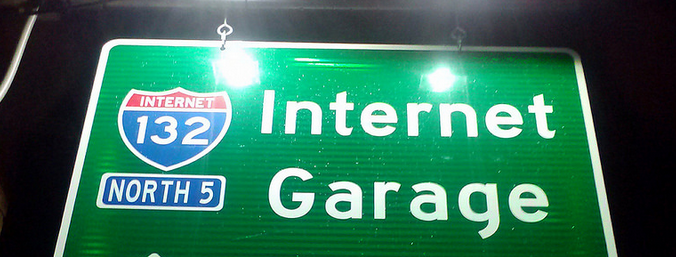AGs For Illinois, New York Ask FCC To Strengthen Net Neutrality
Illinois AG Lisa Madigan and NY AG Eric Schneiderman have combined forces to pen a letter [See full text below] to FCC Chair Tom Wheeler asking him to enact a policy that supports a truly open Internet instead of one that creates work-arounds for the companies with the biggest bank accounts.
“The Internet is the public square of the 21st Century, and the voices of the digital haves, who can afford to pay for preferential treatment, will drown out the digital have-nots,” reads the letter. “In effect, the Information Superhighway will become a toll road. Those who pay will rapidly reach their audiences, while newcomers, startups, and others with limited resources will be left behind.”
In addition to the letter, Madigan and Schneiderman have also filed comments with the FCC urging it to reclassify broadband from its current designation as a minimally regulated “information service” to a “telecommunications service,” which would give the FCC the ability to treat broadband like the vital utility it has become.
“Preserving one set of rules for everyone includes protecting the right of every business or organization seeking to access customers through the web to do so on a level playing field. It also includes ensuring that everyone has free and open access to the Internet and the essential services it provides,” said Schneiderman in a statement.
“The Internet was built upon a simple but powerful concept that ensured equal access to everyone,” adds Madigan. “That standard must be maintained to ensure that the Internet continues to be a driver of innovation and economic opportunity for businesses and an open marketplace for consumers.”
Here is the full text of the letter sent from the AGs to former wireless and cable industry frontman Wheeler —
Dear Chairman Wheeler:
We have filed a Comment on Proceeding Number 14-28, Protecting and Promoting the Open Internet, to strongly urge the Federal Communications Commission to strengthen rules to safeguard democracy on the Internet and preserve “net neutrality.” An Open Internet has been the foundation for unprecedented innovation and growth over the past two decades and the FCC must ensure this foundation is maintained.
Principles of openness and freedom have propelled the Internet from a tiny government research project into the world’s most important platform for innovation, commerce, and social change. It is the launching pad for new ideas, new industries, and new movements. But the dynamism of the Internet depends on its low barriers to entry. Unlike television and other broadcast media, reaching an Internet audience requires little more than a computer and a broadband connection. This is thanks in no small part to the non-discrimination principle that can only be upheld through net neutrality. The Internet we know today was built upon the notion that all content is created equal—whether provided by an independent blogger or by YouTube—and this content must receive equal treatment from broadband providers.
On today’s Internet, a startup business has the opportunity to reach its customers at the same speeds as Amazon. A new thinker can compete in the marketplace of ideas on the same terms as an established one. Consumers are ultimately in the driver’s seat, with individual users, not broadband providers, choosing the content they receive on demand. Under the existing rules, Internet service providers have advanced alongside content providers, with the dial-up service of yesterday yielding to the broadband access of today.
Any move away from net neutrality and from the non-discrimination principle would represent a serious blow to fair competition and innovation on the web. It would hand the keys to this vital platform over to narrow commercial interests, allowing the broadband industry to charge content providers for preferential treatment or “prioritization.” Content providers who agree to pay will receive access to a more reliable Internet “fast lane.” Meanwhile, broadband providers will have no incentive to upgrade or even maintain non-premium service. As they seek to convert more content providers into paying customers, the “slow lane” will only get slower.
In a world without net neutrality, new Internet ventures will not be able to compete with established companies who can shoulder the added costs to deliver content on demand—regardless of whether they offer a better product. Startups that depend on reliable access to their user base might never be funded, with investors deterred by the extra expense. The Internet is the public square of the 21st Century, and the voices of the digital haves, who can afford to pay for preferential treatment, will drown out the digital have-nots.
In effect, the Information Superhighway will become a toll road. Those who pay will rapidly reach their audiences, while newcomers, startups, and others with limited resources will be left behind.
Fortunately, this result is entirely avoidable. In your rulemaking, we urge you to strengthen provisions that protect net neutrality and to preserve the Internet as an open and vibrant platform for innovators, thinkers, and entrepreneurs.
Sincerely,
Eric T. Schneiderman
Lisa Madigan
Want more consumer news? Visit our parent organization, Consumer Reports, for the latest on scams, recalls, and other consumer issues.


